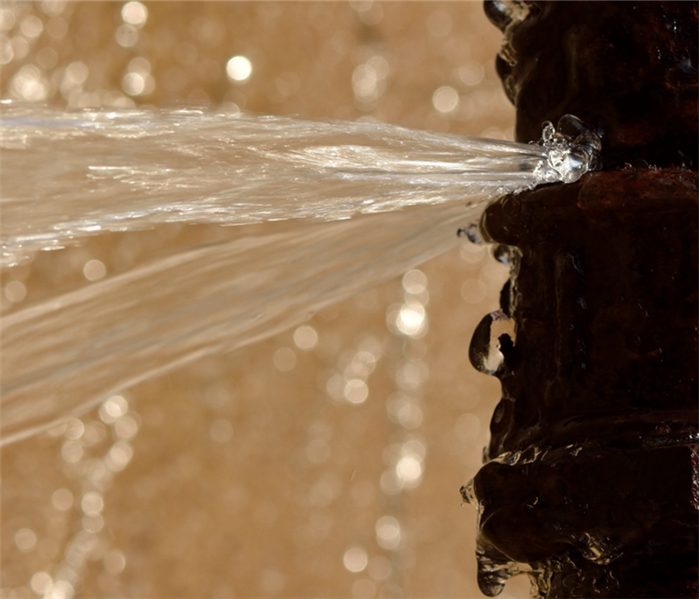How Can I Avoid Frozen Pipes?
1/19/2024 (Permalink)
 Taking proactive steps to winterize your home can save you from the hassle and expense of dealing with frozen pipes.
Taking proactive steps to winterize your home can save you from the hassle and expense of dealing with frozen pipes.
Frigid temperatures are upon us, to avoid frozen pipes its essential to prepare your home for the colder temperatures to prevent the inconvenience and potential damage caused by frozen pipes. Frozen pipes can lead to burst pipes, water damage, and costly repairs. Here are some helpful tips to winterize your home and protect your plumbing system.
- Insulate Exposed Pipes: One of the most effective ways to prevent pipes from freezing is to insulate them. Insulation helps retain heat and keeps the pipes at a stable temperature. Use pipe insulation sleeves or wrapping material to cover exposed pipes in unheated areas, such as the basement, crawl spaces, and attics.
- Seal Leaks and Gaps: Inspect your home for any gaps or cracks that could allow cold air to enter and affect your pipes. Seal these openings with caulk or insulation to prevent drafts. Pay special attention to areas where pipes enter your home, as these are common points for cold air infiltration.
- Disconnect and Drain Outdoor Hoses: Before the winter freeze sets in, disconnect all outdoor hoses and drain the water from them. A frozen hose can lead to back pressure in the pipes inside your home, increasing the risk of freezing. Store hoses in a dry place to prolong their lifespan.
- Locate and Shut Off External Water Sources: If you have external water sources, such as sprinkler systems, make sure to turn off the water supply and drain the pipes. This will prevent water from freezing and causing damage to the system.
- Keep Interior Temperatures Consistent: Maintain a consistent temperature inside your home, especially during extremely cold nights. Set your thermostat to a temperature that will keep the interior warm enough to prevent pipes from freezing. Even when you're away, avoid turning off the heating system completely.
- Let Faucets Drip: On exceptionally cold nights, allow faucets to drip slowly. This continuous flow of water helps prevent freezing by relieving pressure in the pipes. Focus on faucets located along exterior walls and those in colder areas of your home.
- Use Heat Tape: For added protection, consider using heat tape on vulnerable pipes. Heat tape is designed to provide a constant source of low-level heat, helping to prevent freezing. Follow the manufacturer's instructions for proper installation.
- Open Cabinet Doors: In kitchens and bathrooms, open cabinet doors to allow warm air to circulate around pipes located under sinks. This is especially important for pipes along exterior walls, as these are more susceptible to freezing.
Taking proactive steps to winterize your home can save you from the hassle and expense of dealing with frozen pipes. By insulating, sealing gaps, disconnecting outdoor hoses, shutting off external water sources, maintaining consistent interior temperatures, letting faucets drip, using heat tape, and opening cabinet doors, you'll be well-prepared to face the winter months without the worry of plumbing issues. Stay warm, stay dry, and enjoy a worry-free winter in your well-protected home.
If you experience water damage in your home or place of business SERVPRO of Downtown Pittsburgh / Team Dobson is Here to Help®. We are a locally owned and operated company with national resources, so we can handle any size job. We will respond immediately, and we have the expertise and equipment to restore your property as quickly as possible.
Give us a call at (412) 474-0911 or visit our website for more information!







 24/7 Emergency Service
24/7 Emergency Service